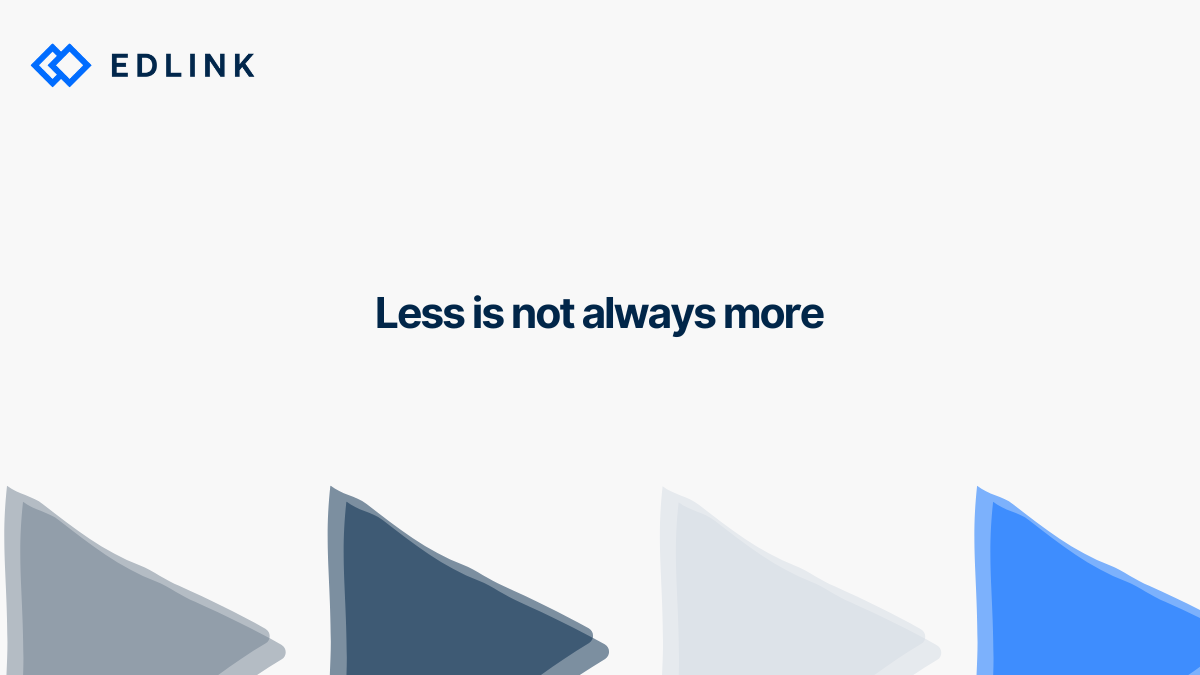The Choice
On the surface, the answer seemed obvious; You're a startup, go with the cheaper one, duh!
But when I dug just a hair deeper, the less expensive software came with tradeoffs:
- Their salespeople didn't take the time to understand our business. They pitched us features we didn't want or need.
- The product was harder to navigate.
- The product we would license isn't the company’s core business focus.
- They only offered self-service support (articles but no human interactions).
The thing these tradeoffs have in common? They're all time-sinks.
So it came down to time vs money.
Which to choose?
Background
Growing up, I was part of the 1%, but not the 1% that you think of when reading an opinion piece by a tech startup cofounder.
I was a part of the 1% of households with children experiencing deep poverty. My parents made less than $8,000 in cash income.
To say that in a different way, we weren't "sort of" poor. We were very poor.
As an adult who no longer worries about money, I've continued to struggle with a scarcity mindset. This has led to questionable long-term decisions in favor of short-term ones.
It’s caused tension in my relationships when I've asked for repayment immediately for couch-change-level expenses. We're talking about sums of money so small that favors as simple and trivial as picking me up from the airport would most definitely make me "whole."
I've challenged myself to focus more on long-term decision-making in my personal life. At first, it was painful. I've since begun reaping the benefits.
Founding a company has resurfaced some of my old scarcity mindset habits. Some of these habits have been necessary to survive (and thrive) up until this point. I imagine if you're reading this and you're a start-up founder, you've experienced the same.
You know the voice:
"We're barely a year old."
"I just have 2 customers."
"There are only 3 of us working here."
There are areas where a business owner with inner dialogue like this could do some serious damage.
One of those areas is the choice between time and money.
A Contrarian Take
It's said that most startups fail because they run out of money. I don't buy that.
Startups fail because they waste their time.
They waste time building products that no one wants.
They don't validate that a real human being will pay them real dollars before they raise capital to build their idea. Taking the time to validate your idea through Customer Discovery means you save both time and money down the road.
They work with ineffective vendors who are cheaper or worse, "free."
In Dan Ariely’s words: "We often pay too much when we pay nothing." You see this a lot in two-sided marketplaces. In order to drum up demand on the paying side of the marketplace, an organization will give away their "product" for free to the other side. The problem here though is that people value what they pay for. So, then, the paying side of the marketplace pays for access to this "audience" that is totally disengaged because they have 0 personal (or business) investment in using the platform.
Now the paying side of this hypothetical marketplace is left dealing with a sunk-cost fallacy even though they aren't getting the return on investment they were promised.
They build internal tools that aren't core to their value proposition.
It makes sense to vertically integrate or build out internal tooling when it solves the primary bottleneck your business has in achieving its mission at that point in time. Otherwise, if you can afford it, buy it – don't build it. Clear the path to focus on moving toward accomplishing your organization's purpose as quickly as possible.
Your bottom line will be happier.
Your employees will be happier.
Your customers will be happier.
Think about it this way: menus with fewer items tend to be of a higher quality than menus with 30 pages. It's Chilis vs Otherside Deli.
They hire employees who don't believe in the company's values.
As a small, customer-funded startup, it's tempting to just hire the first bloke that comes along and says they want to work for us. After all, can I be picky when we're competing with the Metas and Googles of the world?
Yes, actually, I can, if I want to build not just a good company, but a great one.
Values are the organization’s lighthouse for decisions and actions. And a company's people are, well, the company. Without this lighthouse and the right people in the right seats to row the organization consistently in the same direction, a company will never truly be great.
When Less is More
So what did I choose?
Time or money?
The less expensive option with the inefficient sales process and big promises, or the more expensive option with the premium customer support and value-adds from day one?
In the end, I chose the option that required more capital upfront (Drata, if you're wondering). Take that, poverty mindset.
I chose less cash in my (business) account for more focus and more time.
I can always make more money.
I don't get back time once I've spent it.
Learn More about Edlink
If you're looking for a partner who can help guide you through developing LMS integrations (like these), then let’s introduce ourselves. We’re Edlink!
Set Up a Meeting
Ready to see if Edlink can help you on your integration journey? Email us at support@ed.link to set up a call.

